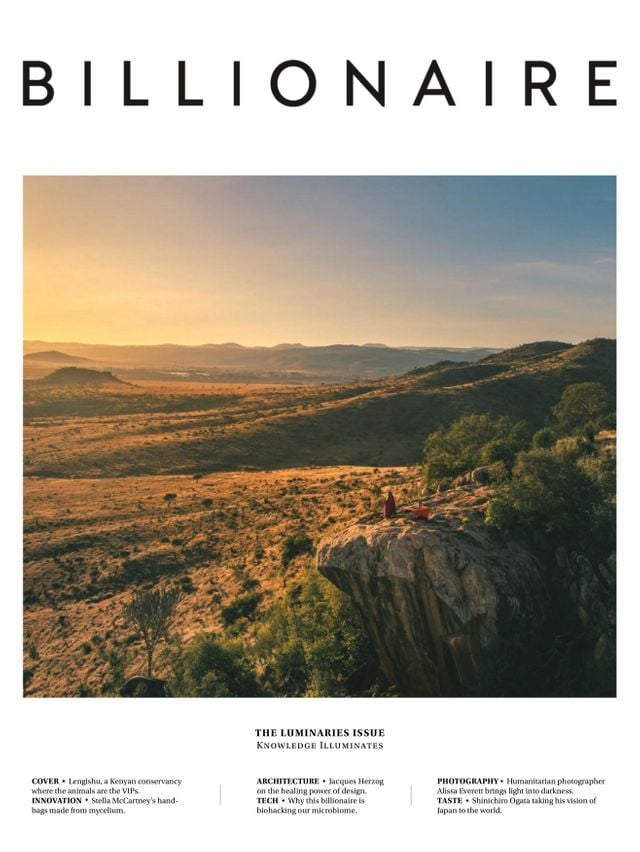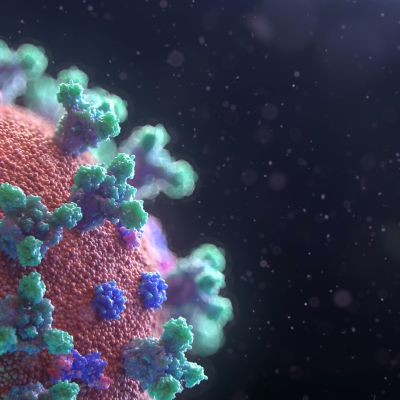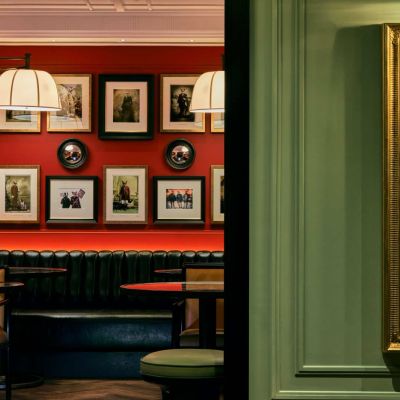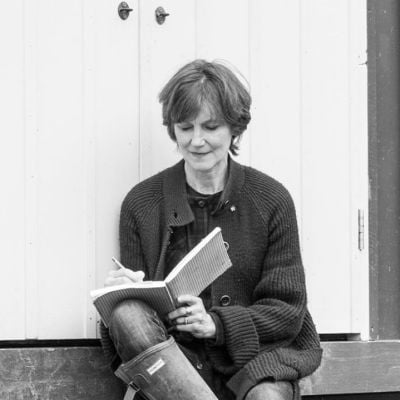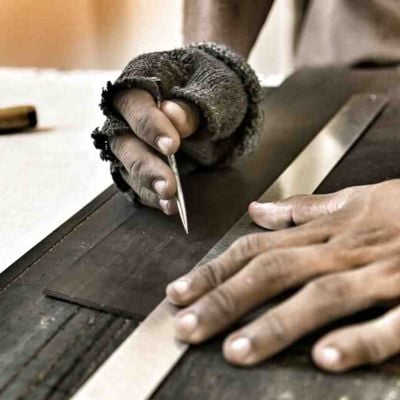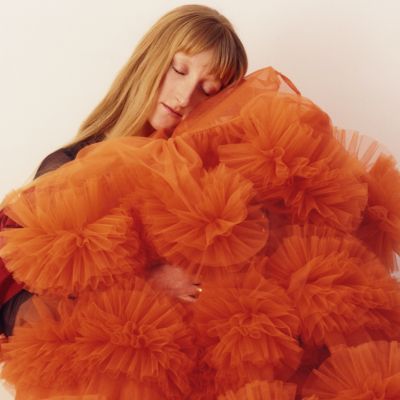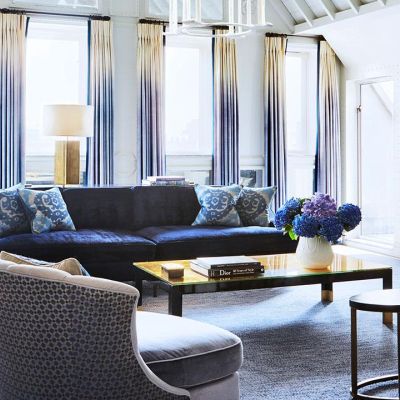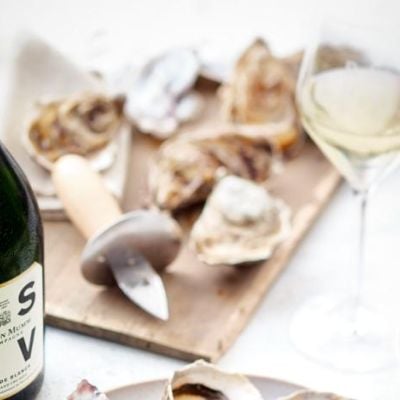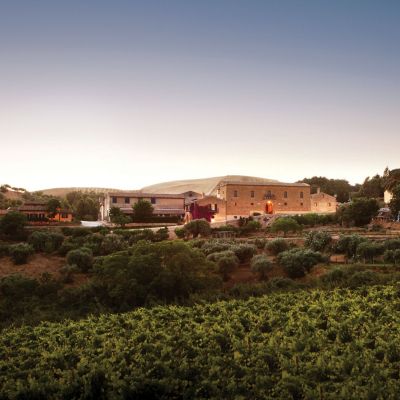Art and Soul
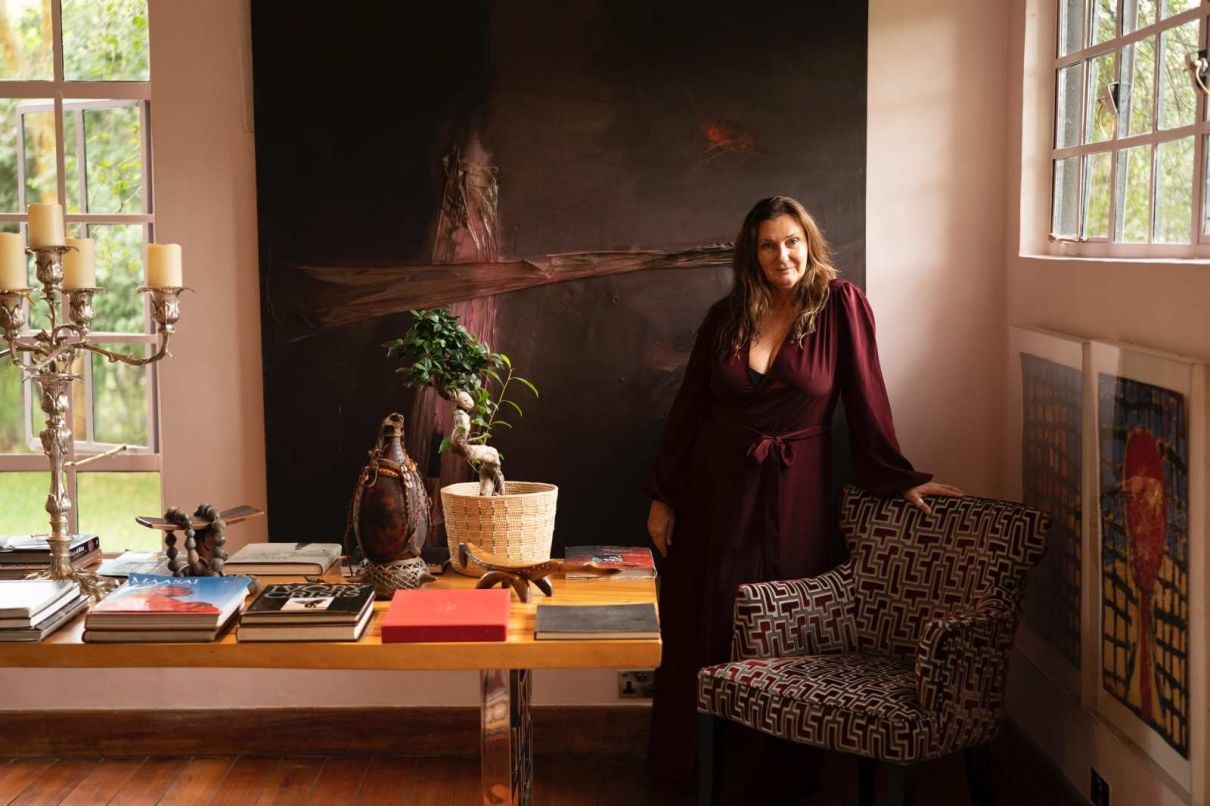
Filled with more than 200 pieces of family artwork, Eden Nairobi is a luxury design hotel with a soulful story.
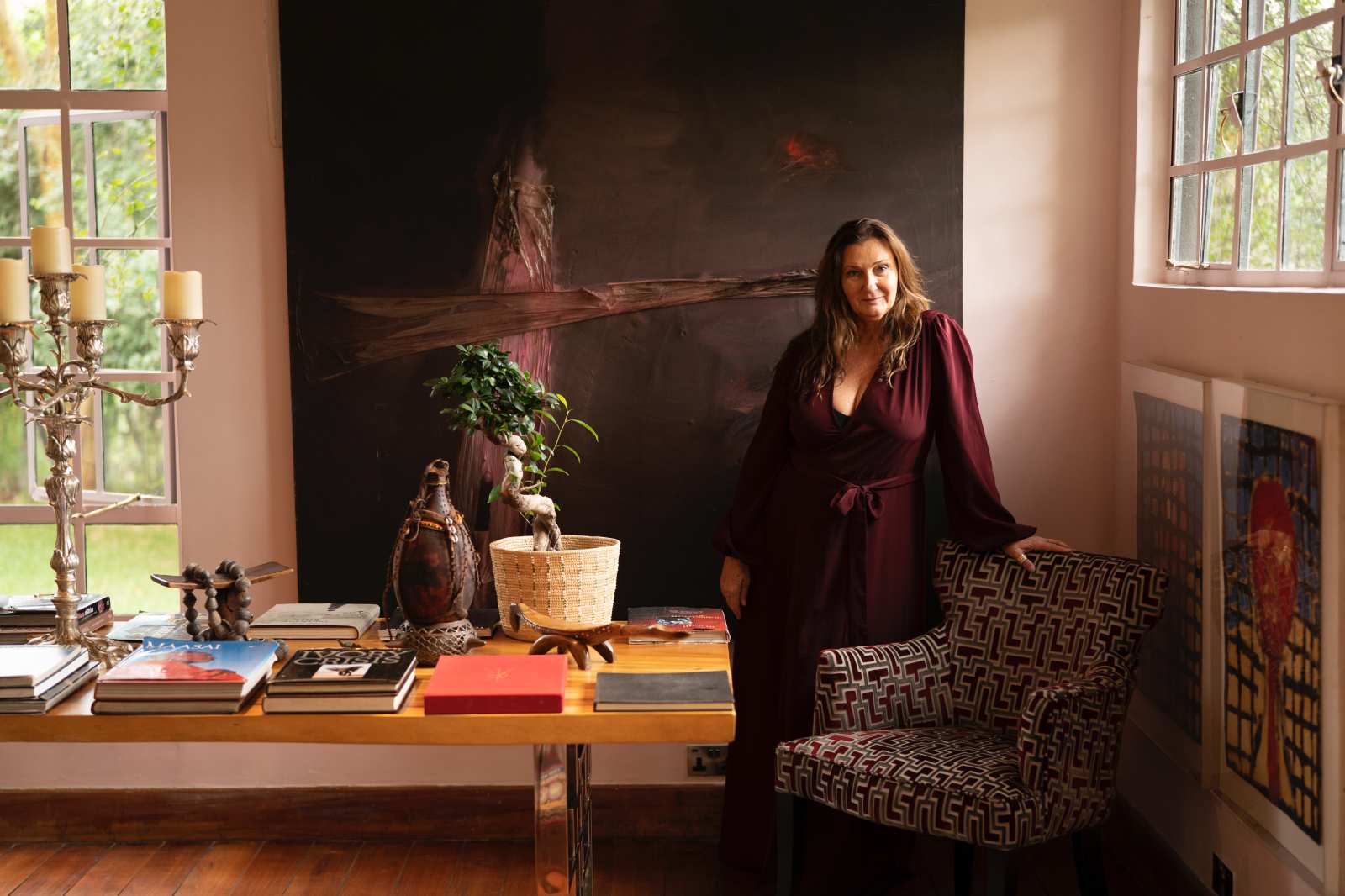
“In the end, I got to tell our story without uttering a word,” says Anna Trzebinski, fashion-designer-turned-hotelier and owner of luxury boutique hotel Eden Nairobi. Sitting beside her, whisky in hand, in front of a crackling fire in her home, the walls covered with the expressionistic canvases of her late husband Tonio Trzebinski, complemented by masculine bronze sculptures of her son and delicate, coral-like ceramics of her daughter, there is quite a story to tell.
German-born Anna grew up in Kenya and met Tonio, an artist, as a child: “When we met it was fireworks; he became the love of my life.” After marrying in their early 20s, Anna’s stepfather gifted them a four-acre plot in the affluent suburb of Longata to set up an art studio and home; the money to build it was a present from her grandmother. “There were no art collectors rattling around Kenya in those days, but Tonio was passionate about his art,” she says. “It was always what he was going to do.”
They set about building a home and art studio using materials salvaged and pieced together. When surfing on their honeymoon, Tonio discovered the shipwreck of a dhow washed up on the beach; Anna collected the wood and used it to build the staircase that still characterises the sitting room of the main house; other pieces of furniture she made from carpenters’ offcuts; “we built everything ourselves”. By the age of 27 she had also created two other masterpieces: two of her three children, Stas and Lana.
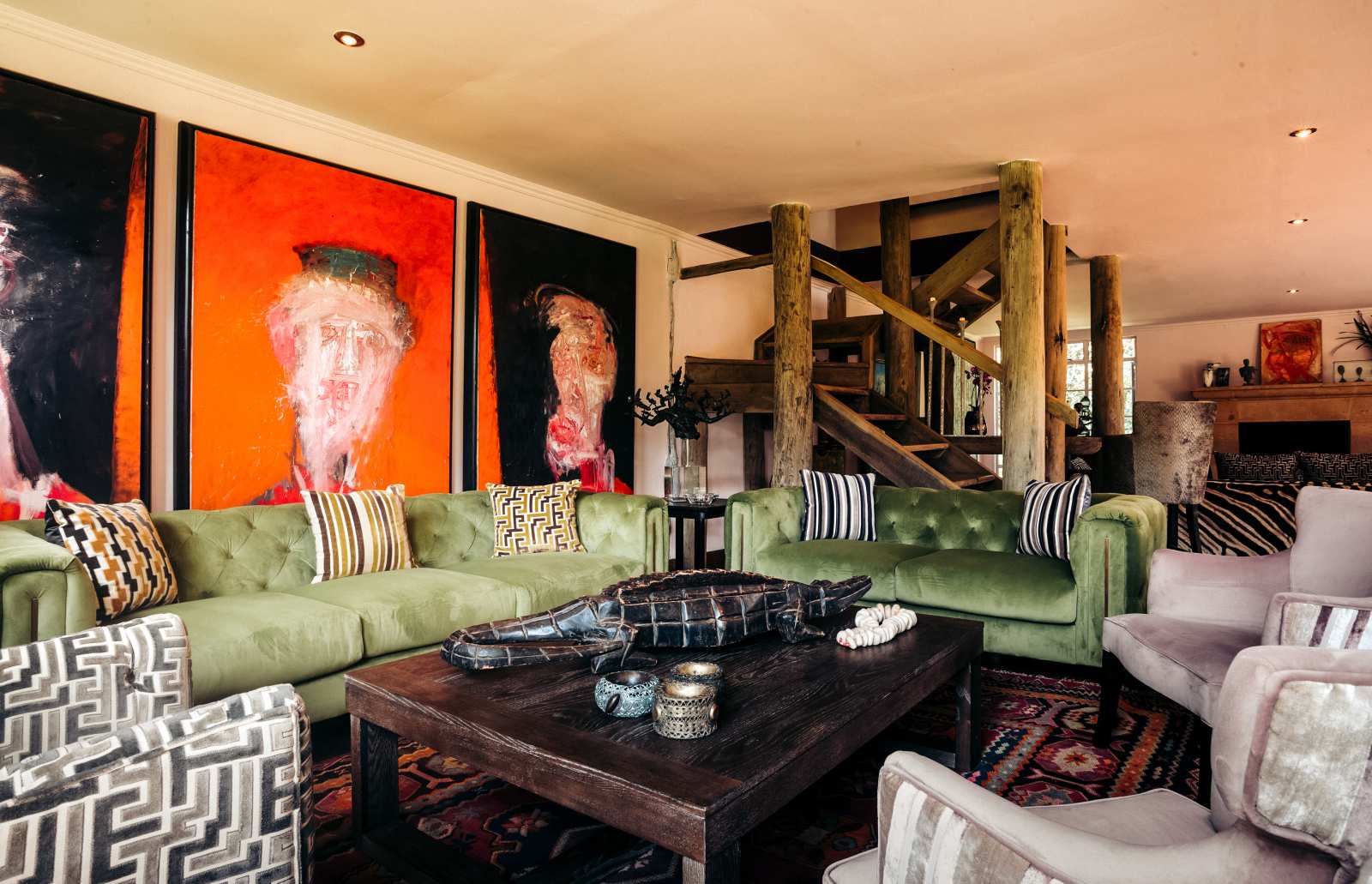
Life was good. They had a “magic” childhood, says her daughter Lana, now in her late 20s and a successful artist. “Almost every weekend we were tossed in the back of the car off to some remote spot either in the middle of the bush or somewhere along the Kenyan coast… spending hours on the ocean, fishing, surfing, snorkelling and playing on beaches or sleeping under mosquito nets under a blanket of stars.”
Tonio would paint in his studio most days, stripped to the waist and working with “Herculean energy”. He had had a hit show in London and his work had caught the eye of top collectors in the US and Europe.
But it all changed when Tonio was shot and killed in a headline-grabbing, carjacking-gone-wrong case; Stas and Lana were just eight and nine years old. “I had absolutely no idea what to do, my first instinct was to run for the hills,” Anna says. But, now the breadwinner, she pulled herself together and ramped up her eponymous fashion business, packing a suitcase with her jewelled, beaded and feathered creations, which she took to Donna Karan and Paul Smith. They signed big orders. Years later, Anna remarried a Samburu warrior, had a third child, Tacha, then moved to the US for a stint where she opened a shop in Aspen. But Nairobi was home, and before long she felt its siren call. She returned to the home that she and Tonio had built together and breathed new life into it, expanding it and turning it into a boutique hotel.
A stay at Eden Nairobi is to enter a world of colour and life against the backdrop of a cool oasis. In the grounds, green and forested, guinea fowl and chickens peck freely. The main wooden house is tucked in between trees where, at night, bush babies can be heard chattering and croaking (a bush baby also features as the hotel’s logo). Above all is a sense of authenticity. The workforce is partly made up of a tribe of Samburu warriors in traditional clothing, who, each evening, invite you to gather around a blazing campfire to sing to the stars. The nine suites, all individually designed by Anna, are decorated with the art of the powerful triumvirate of Tonio, Stas and Lana, their very different styles working in perfect harmony. There is also the touch of famous artists such as Peter Beard, a neighbour and friend, as well as travel mementoes, page-worn novels, vibrant orchids and Anna’s amazing collection of tribal headrests. The sense is of an intimate African family home, which, of course, is what it was.
Eden is run using green practices, using solar energy to heat all guest hot water, enforcing a complete ban on single-use plastic and recycling all wastewater to use in the grounds of the hotel. Vegetable and fruit waste goes to feed the resident chickens and drinking water comes from its own borehole with onsite purification.
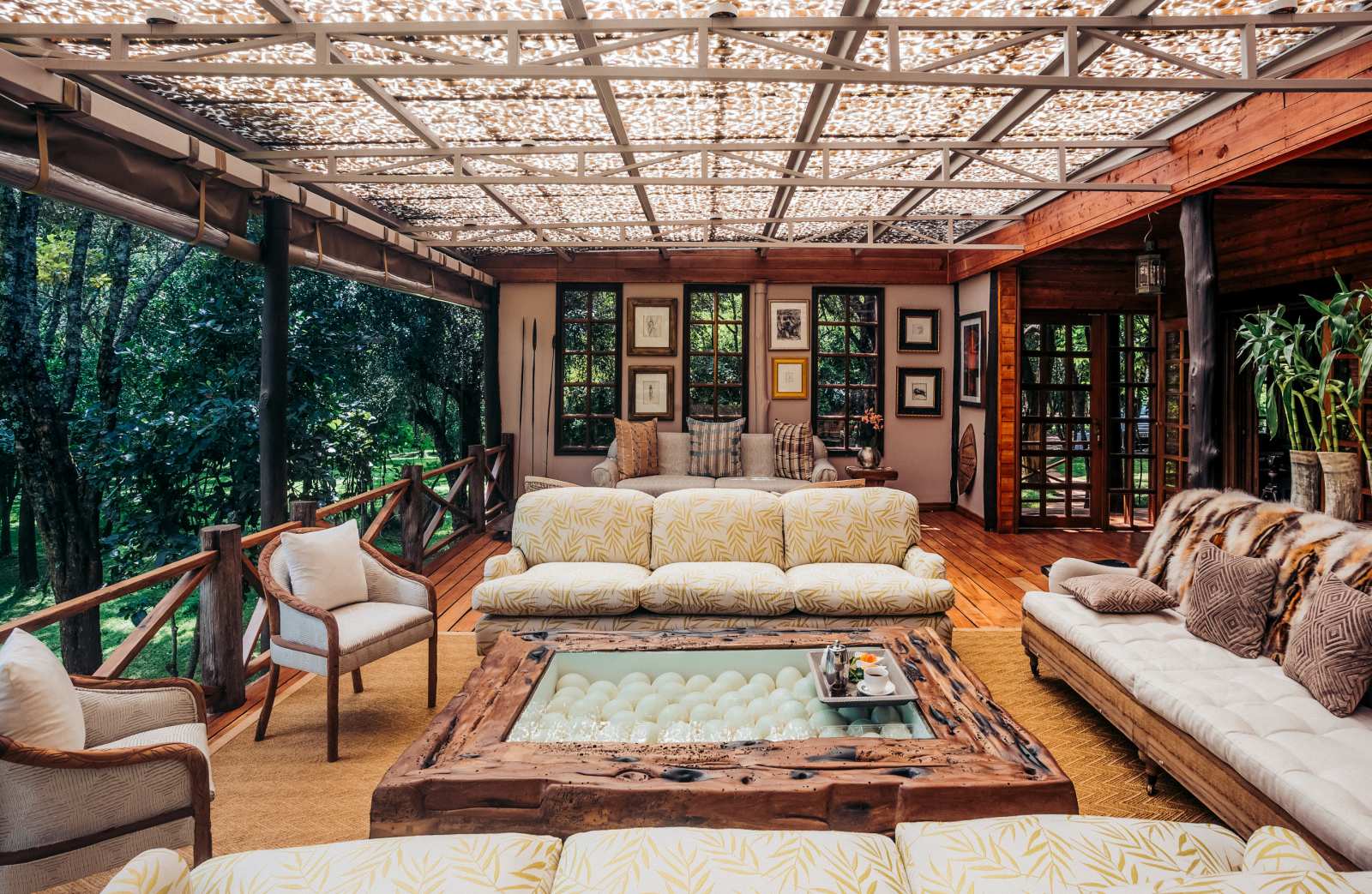
In contrast to the cosiness of the main house, The Deck is the vibrant, extrovert beating heart of the place, with its Egg Bar hung with ostrich eggs, decorated with brightly beaded chairs and glass coffee tables filled with seashells. Overlooking a ‘woman-made’ lake, at night, it dazzles from the reflection of a myriad candles on the water. It is here that Anna hosts regular gatherings to showcase contemporary Kenya, in particular its female artists and social entrepreneurs. One night, Anna invites a rainbow of creatives to dinner and dancing co-hosted by art curator Peter Achayo, including Lucy Chodota, the film and documentary maker behind the TV series Rush; humanitarian photographer Alissa Everett; and photojournalist Carol Beckwith. Next day at lunch, we sit down with Peter Kinyua, conservationist and chairman of Rhino Ark, one of the several charities supported by Eden. At breakfast we hear from local social entrepreneurs: Ritesh Doshi, who runs artisanal coffee company Spring Valley; and Tehmeena Manji, founder of Muthaiga Tea Company and one of the first tea sommeliers in Kenya.
“This was never about heads on beds,” Anna explains. “For me this is an exploration of who we are as Kenyans. The Eden Project [the philanthropic side of Eden], is something way beyond the hotel. I cross-pollinate. My passion is in helping build the community and show the world that we don’t need external validation.”
It was actually the pandemic that inspired her to move down the route of a boutique hotel and community-gathering space, explains Anna. Almost overnight, lockdowns prevented her usual trunk shows and a big rental contract was terminated. She sold off all her stock at cost value in order to keep her all-female staff. “Everyone kept their jobs.” Shifting from couture to design, her team turned its hands to turning the family home into a boutique hotel and restaurant.
Now age 56, Anna Trzebinski is full of ideas and plans for what lies ahead, including opening an Eden on Lamu, a fashionable island North of Mombasa that is a hit with artists and royals. With her golden touch, it will surely become another brilliant chapter in Anna’s story.

